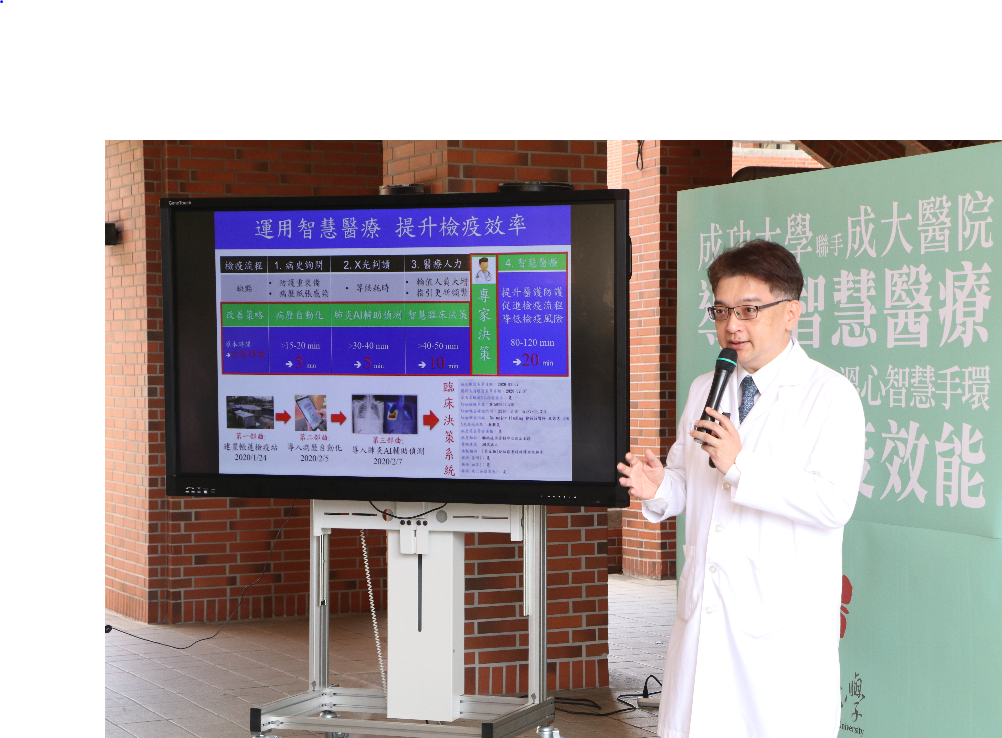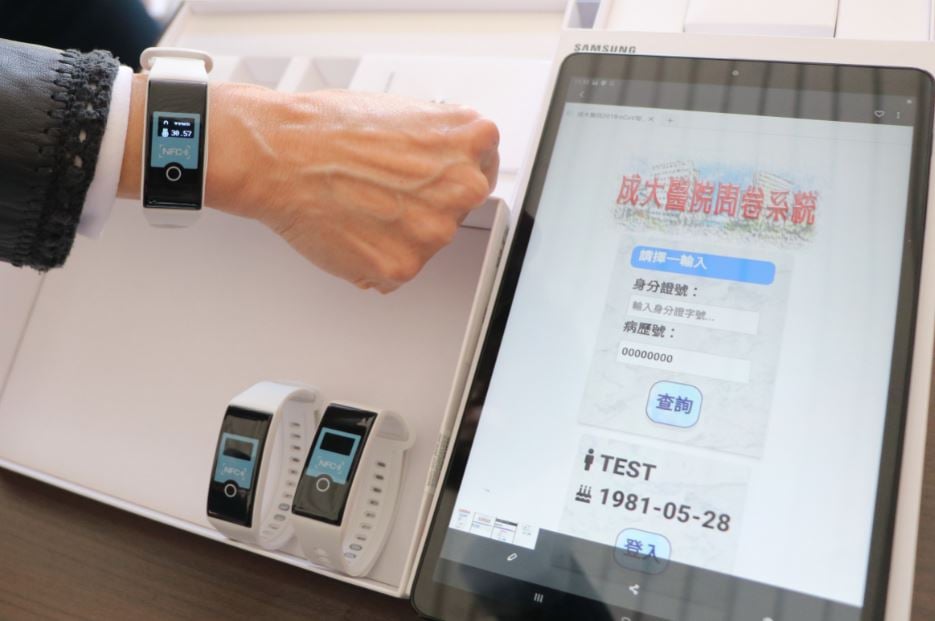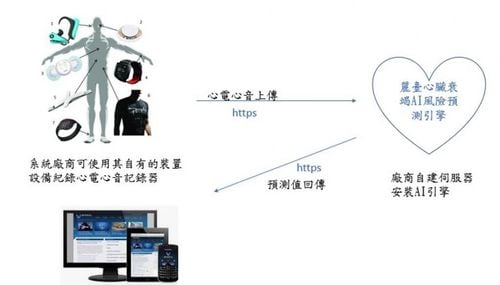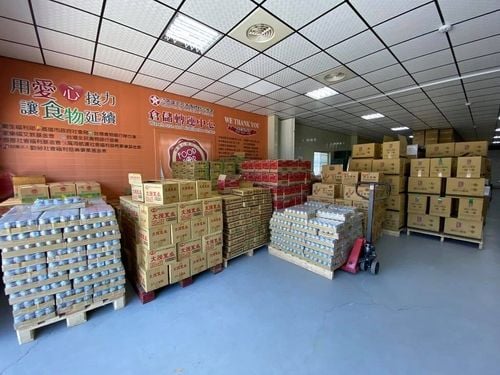【2020 Application Example】 AI Fights Pandemic: 6 Times Efficiency Increase in Wuhan Pneumonia Quarantine
Combatting the epidemic is like fighting a fire. With the increasing influx of returning residents, the pressure of Wuhan virus quarantine is mounting, consuming more time. Shortening quarantine times will positively benefit disease prevention efforts. At a hospital in Southern Taiwan, the 'Smart Medical Clinical Decision Support System' has helped reduce the time taken for high-risk patients from entry at the quarantine station to clinical decisions by doctors. It originally took about 2 and a half hours, but now it's down to less than 30 minutes, increasing the quarantine efficiency by 5 to 6 times and significantly reducing the risk of cross-infection between medical personnel and patients, as well as the manpower needed for quarantine.
As waves of overseas students densely return to Taiwan, not only the Central Epidemic Command Center, but also various medical institutions are tightening up, closely monitoring every quarantined individual. There are also concerns about the potential infection risks to colleagues, which is exhausting. At this point, employing AI technology to enhance quarantine efficiency is indeed a great blessing for the medical units and the health of the nation.
AI-Assisted Medicine Multiplies, Becoming a Hero in Pandemic Control
To combat the severe pandemic of novel coronavirus, the hospital has integrated various smart medical techs and developed the 'Smart Medical Clinical Decision Support System', raising quarantine efficiency by 5 to 6 times. It has shortened the time taken for high-risk patients from entering the quarantine station to doctors making clinical decisions from 2 and a half hours to less than 30 minutes, effectively reducing the risk of cross-infections.
The 'Smart Medical Clinical Decision Support System' implemented by the hospital includes three components: front-end automation of medical records, AI-assisted interpretation of chest X-rays for diagnosing pneumonia, and continuous updates of clinical decisions based on the latest epidemic data provided by the health department. This significantly enhances the hospital's response and decision-making ability in quarantine and epidemic prevention, and greatly benefits Taiwan's anti-epidemic efforts through the multiplicative effect of AI-assisted medicine.

▲ National Cheng Kung University collaborates with the hospital, using smart medical technology to enhance quarantine efficiency (Photo source: Official website)
In the aspect of medical record automation, existing medical institutions often use traditional paper or verbal reporting, which potentially increases the risk of contact infections among medical staff and patients. The automated medical records system in this hospital allows patients to fill out their own medical history, including travel, occupation, contacts, and clustering, using tablet computers. These records are uploaded to the electronic medical record system, enabling immediate access by medical staff to make clinical decisions. Each tablet is disinfected with alcohol after every use, reducing the risk of cross-infection and enhancing the efficiency of the quarantine station.
The hospital's Wuhan pneumonia screening shows a sensitivity and accuracy of up to 80% and 90%, respectively.
The 'Chest X-Ray AI Interpretation for Pneumonia System Model' developed by the hospital's Department of Radiology, with active participation from Professor Yong-Nian Sun's team at the College of Electrical Engineering and Computer Science. Utilizing a tuberculosis X-ray AI auto-interpretation model developed by a previous AI biotech medical innovation research center project, it was adapted to the hospitals' pneumonia imaging data. The collaboration between the parties ensured rapid completion. Currently assisting in over 152 suspected Wuhan pneumonia screenings, sensitivities and accuracies of up to 80% and 90% have been achieved, respectively.
Moreover, for students conducting in-home quarantine at school dormitories, the university has adopted a smart monitoring approach with a 'Warm Heart Smart Bracelet' developed by a cross-disciplinary team, which continuously monitors quarantined individuals' body temperatures and heart rates as indicators for predicting symptoms. When a rise in body temperature is detected, individuals can proactively confirm abnormal symptoms via a smartphone app and be prompted to seek medical attention. Currently, bracelets are collected weekly and data is centrally uploaded to a cloud platform by the management staff for ongoing tracking, wholly enhancing the level of pandemic control internally and externally.

▲ The university's cross-disciplinary team uses 'Warm Heart Smart Bracelets' to implement home quarantine policies effectively (Photo source: Official website)
「Translated content is generated by ChatGPT and is for reference only. Translation date:2024-05-19」


